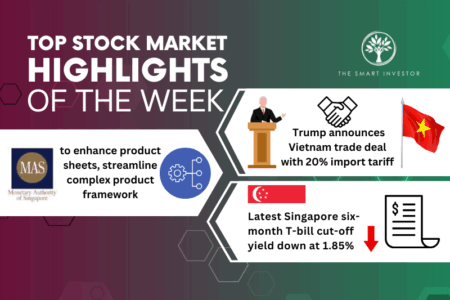If an industry is in trouble, all the companies within it will suffer, no matter how well-run the business may be.
As such, you should determine if an industry has sufficient growth prospects before searching for suitable companies within it.
This approach, known as “top-down investing”, selects promising industries first before drilling down into the best companies within those industries.
The approach deserves some thought, given how the COVID-19 pandemic has caused untold pain and suffering to a large swath of industries.
Travel curbs, lockdowns and social distancing have brought financial stress to many businesses.
Here are five vulnerable industries that investors need to monitor more closely.
Oil and gas
Last month, a huge oil glut in global markets resulted in the oil price crashing to a 21-year low of US$20 per barrel.
The futures for May’s contract even crashed below zero to end at negative US$37.63, the first time in history where oil closed at a negative price.
Investors may recall the 2015 oil price crash from a high of US$110 per barrel to around US$40 per barrel.
That crash alone had wiped out heavily leveraged oil and gas firms such as Ezra Holdings Limited (SGX: 5DN) (currently under judicial management), while others like Swiber Holdings Limited (SGX: BGK) are undergoing restructuring.
With oil prices crashing to new decade lows, oil and gas firms are once again facing tough conditions.
Oil-related companies such as Sembcorp Marine Ltd (SGX: S51) and MTQ Corporation Limited (SGX: M05) have warned of difficult conditions ahead.
Aviation
Global airline companies are facing an unprecedented crisis as the pandemic forced the grounding of a majority of their planes.
Boeing’s CEO suggested that a major airline will likely go belly up soon due to the pandemic.
He also believes that it could take up to three to five years for the industry to recover to pre-pandemic passenger levels.
Back home, Singapore Airlines Limited (SGX: C6L) had just concluded a massive rights issue to shore up its balance sheet.
Companies such as SIA Engineering Company Ltd (SGX: S59) and SATS Ltd (SGX: S58) have also warned of challenging conditions as the number of flights has plunged.
Retail
As more people stay home due to the circuit breaker measures, footfall at malls has all but dried up.
Only essential services are allowed to operate within these malls, resulting in most malls around Singapore turning into virtual “ghost towns”.
REITs that own a portfolio of shopping malls have been doling out tenant support packages to keep their tenants afloat until the circuit breaker is lifted.
Such REITs have thus retained a large portion of their distributable income to prepare for this, resulting in plunging distribution per unit (DPU).
Some recent examples include SPH REIT (SGX: SK6U) and Frasers Centrepoint Trust (SGX: J69U), with 80% and 48.7% reductions to DPU, respectively.
Tourism
Tourism has been badly hit, with tourist arrivals to Singapore plunging by 85% year on year in March to hit a 17-year low.
Changi Airport’s Terminal 4 will suspend operations from May 16, coming hot on the heels of Terminal 2’s suspension for 18 months from May 1.
Tourism operators such as Straco Corporation Limited (SGX: S85) are also badly hit. The group had to temporarily shut down its Singapore Flyer operations in Singapore. Though the group’s Shanghai Ocean Aquarium has been given the green light to reopen on 15 May, it is only allowed to operate at 30% of its daily capacity. The group’s other aquarium attraction, Underwater World Xiamen, remains shut for now.
Hospitality
Hotel operators have been feeling the heat since March as the pandemic situation escalated quickly.
Hotels have experienced one of the sharpest plunges in occupancy rates in memory as scores of people cancel their holiday bookings due to the pandemic.
In the US, occupancy rate plummeted to just 21%, while RevPAR (revenue per available room) declined by nearly 84% year on year.
The situation is not much better in Singapore, either.
Far East Hospitality Trust (SGX: Q5T), a REIT that owns a portfolio of Singapore hotels, reported a plunge in occupancy from 89.2% to 65.3% in the current quarter.
RevPAR fell by 32.8% year on year to just S$94 from S$140 a year ago.
With lockdowns and air travel being curtailed for most of the second quarter of 2020, hotels are poised to report even more dismal numbers.
Want to know what stocks we like for our portfolio? See for yourself now. Simply CLICK HERE to scoop up a FREE copy of our special report. As a bonus, we also highlight 6 blue chips stocks trading at a 10-year low. But you will want to hurry – this free report is available for a brief time only.
Disclaimer: Royston Yang owns shares in SATS Ltd and Straco Corporation Limited.




